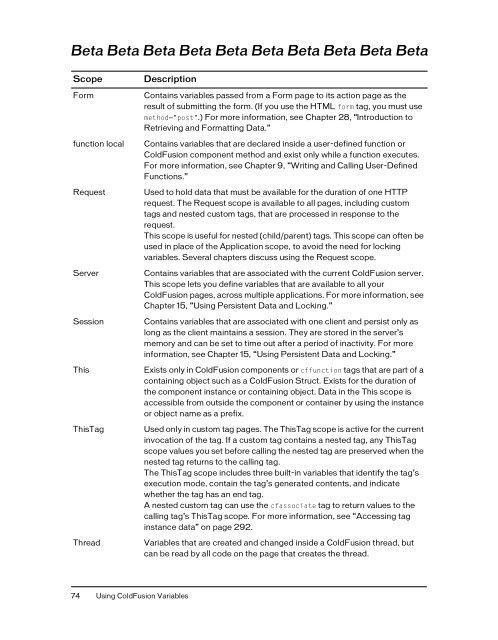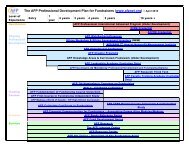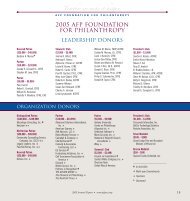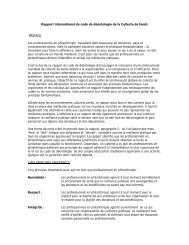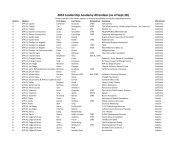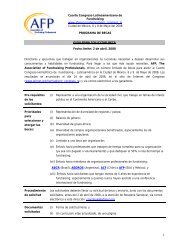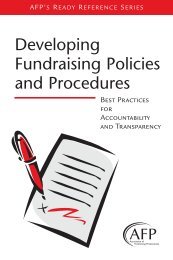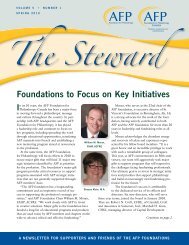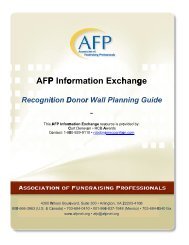- Page 1 and 2:
Beta ColdFusion Developer’s Guide
- Page 3 and 4:
Beta Contents Introduction . . . .
- Page 5 and 6:
Beta Chapter 8: Creating ColdFusion
- Page 7 and 8:
Beta About resource and sandbox sec
- Page 9 and 10:
Beta Refining your searches with zo
- Page 11 and 12:
Beta Authentication. . . . . . . .
- Page 13 and 14:
Beta Using WDDX. . . . . . . . . .
- Page 15 and 16:
Beta Sending outgoing messages . .
- Page 17 and 18:
Beta Beta Beta Beta Beta Beta Beta
- Page 19 and 20:
Beta Beta Beta Beta Beta Beta Beta
- Page 21 and 22:
Beta Beta Beta Beta Beta Beta Beta
- Page 23 and 24: Beta Beta Beta Beta Beta Beta Beta
- Page 25 and 26: Beta Beta Beta Beta Beta Beta Beta
- Page 27: Beta Beta Beta Beta Beta Beta Beta
- Page 30 and 31: Beta Beta Beta Beta Beta Beta Beta
- Page 32 and 33: Beta Beta Beta Beta Beta Beta Beta
- Page 34 and 35: Beta Beta Beta Beta Beta Beta Beta
- Page 36 and 37: Beta Beta Beta Beta Beta Beta Beta
- Page 38 and 39: Beta Beta Beta Beta Beta Beta Beta
- Page 40 and 41: Beta Beta Beta Beta Beta Beta Beta
- Page 42 and 43: Beta Beta Beta Beta Beta Beta Beta
- Page 44 and 45: Beta Beta Beta Beta Beta Beta Beta
- Page 46 and 47: Beta Beta Beta Beta Beta Beta Beta
- Page 48 and 49: Beta Beta Beta Beta Beta Beta Beta
- Page 50 and 51: Beta Beta Beta Beta Beta Beta Beta
- Page 52 and 53: Beta Beta Beta Beta Beta Beta Beta
- Page 54 and 55: Beta Beta Beta Beta Beta Beta Beta
- Page 56 and 57: Beta Beta Beta Beta Beta Beta Beta
- Page 58 and 59: Beta Beta Beta Beta Beta Beta Beta
- Page 60 and 61: Beta Beta Beta Beta Beta Beta Beta
- Page 62 and 63: Beta Beta Beta Beta Beta Beta Beta
- Page 64 and 65: Beta Beta Beta Beta Beta Beta Beta
- Page 66 and 67: Beta Beta Beta Beta Beta Beta Beta
- Page 68 and 69: Beta Beta Beta Beta Beta Beta Beta
- Page 70 and 71: Beta Beta Beta Beta Beta Beta Beta
- Page 72 and 73: Beta Beta Beta Beta Beta Beta Beta
- Page 76 and 77: Beta Beta Beta Beta Beta Beta Beta
- Page 78 and 79: Beta Beta Beta Beta Beta Beta Beta
- Page 80 and 81: Beta Beta Beta Beta Beta Beta Beta
- Page 82 and 83: Beta Beta Beta Beta Beta Beta Beta
- Page 84 and 85: Beta Beta Beta Beta Beta Beta Beta
- Page 86 and 87: Beta Beta Beta Beta Beta Beta Beta
- Page 88 and 89: Beta Beta Beta Beta Beta Beta Beta
- Page 90 and 91: Beta Beta Beta Beta Beta Beta Beta
- Page 92 and 93: Beta Beta Beta Beta Beta Beta Beta
- Page 94 and 95: Beta Beta Beta Beta Beta Beta Beta
- Page 96 and 97: Beta Beta Beta Beta Beta Beta Beta
- Page 98 and 99: Beta Beta Beta Beta Beta Beta Beta
- Page 100 and 101: Beta Beta Beta Beta Beta Beta Beta
- Page 102 and 103: Beta Beta Beta Beta Beta Beta Beta
- Page 104 and 105: Beta Beta Beta Beta Beta Beta Beta
- Page 106 and 107: Beta Beta Beta Beta Beta Beta Beta
- Page 108 and 109: Beta Beta Beta Beta Beta Beta Beta
- Page 110 and 111: Beta Beta Beta Beta Beta Beta Beta
- Page 112 and 113: Beta Beta Beta Beta Beta Beta Beta
- Page 114 and 115: Beta Beta Beta Beta Beta Beta Beta
- Page 116 and 117: Beta Beta Beta Beta Beta Beta Beta
- Page 118 and 119: Beta Beta Beta Beta Beta Beta Beta
- Page 120 and 121: Beta Beta Beta Beta Beta Beta Beta
- Page 122 and 123: Beta Beta Beta Beta Beta Beta Beta
- Page 124 and 125:
Beta Beta Beta Beta Beta Beta Beta
- Page 126 and 127:
Beta Beta Beta Beta Beta Beta Beta
- Page 128 and 129:
Beta Beta Beta Beta Beta Beta Beta
- Page 130 and 131:
Beta Beta Beta Beta Beta Beta Beta
- Page 132 and 133:
Beta Beta Beta Beta Beta Beta Beta
- Page 134 and 135:
Beta Beta Beta Beta Beta Beta Beta
- Page 136 and 137:
Beta Beta Beta Beta Beta Beta Beta
- Page 138 and 139:
Beta Beta Beta Beta Beta Beta Beta
- Page 140 and 141:
Beta Beta Beta Beta Beta Beta Beta
- Page 142 and 143:
Beta Beta Beta Beta Beta Beta Beta
- Page 144 and 145:
Beta Beta Beta Beta Beta Beta Beta
- Page 146 and 147:
Beta Beta Beta Beta Beta Beta Beta
- Page 148 and 149:
Beta Beta Beta Beta Beta Beta Beta
- Page 150 and 151:
Beta Beta Beta Beta Beta Beta Beta
- Page 152 and 153:
Beta Beta Beta Beta Beta Beta Beta
- Page 154 and 155:
Beta Beta Beta Beta Beta Beta Beta
- Page 156 and 157:
Beta Beta Beta Beta Beta Beta Beta
- Page 158 and 159:
Beta Beta Beta Beta Beta Beta Beta
- Page 160 and 161:
Beta Beta Beta Beta Beta Beta Beta
- Page 162 and 163:
Beta Beta Beta Beta Beta Beta Beta
- Page 164 and 165:
Beta Beta Beta Beta Beta Beta Beta
- Page 166 and 167:
Beta Beta Beta Beta Beta Beta Beta
- Page 168 and 169:
Beta Beta Beta Beta Beta Beta Beta
- Page 170 and 171:
Beta Beta Beta Beta Beta Beta Beta
- Page 172 and 173:
Beta Beta Beta Beta Beta Beta Beta
- Page 174 and 175:
Beta Beta Beta Beta Beta Beta Beta
- Page 176 and 177:
Beta Beta Beta Beta Beta Beta Beta
- Page 178 and 179:
Beta Beta Beta Beta Beta Beta Beta
- Page 180 and 181:
Beta Beta Beta Beta Beta Beta Beta
- Page 182 and 183:
Beta Beta Beta Beta Beta Beta Beta
- Page 184 and 185:
Beta Beta Beta Beta Beta Beta Beta
- Page 187 and 188:
Beta Beta Beta Beta Beta Beta Beta
- Page 189 and 190:
Beta Beta Beta Beta Beta Beta Beta
- Page 191 and 192:
Beta Beta Beta Beta Beta Beta Beta
- Page 193 and 194:
Beta Beta Beta Beta Beta Beta Beta
- Page 195 and 196:
Beta Beta Beta Beta Beta Beta Beta
- Page 197 and 198:
Beta Beta Beta Beta Beta Beta Beta
- Page 199 and 200:
Beta Beta Beta Beta Beta Beta Beta
- Page 201 and 202:
Beta Beta Beta Beta Beta Beta Beta
- Page 203 and 204:
Beta Beta Beta Beta Beta Beta Beta
- Page 205 and 206:
Beta Beta Beta Beta Beta Beta Beta
- Page 207 and 208:
Beta Beta Beta Beta Beta Beta Beta
- Page 209 and 210:
Beta Beta Beta Beta Beta Beta Beta
- Page 211 and 212:
Beta Beta Beta Beta Beta Beta Beta
- Page 213 and 214:
Beta Beta Beta Beta Beta Beta Beta
- Page 215 and 216:
Beta Beta Beta Beta Beta Beta Beta
- Page 217 and 218:
Beta Beta Beta Beta Beta Beta Beta
- Page 219 and 220:
Beta Beta Beta Beta Beta Beta Beta
- Page 221 and 222:
Beta Beta Beta Beta Beta Beta Beta
- Page 223 and 224:
Beta Beta Beta Beta Beta Beta Beta
- Page 225 and 226:
Beta Beta Beta Beta Beta Beta Beta
- Page 227 and 228:
Beta Beta Beta Beta Beta Beta Beta
- Page 229 and 230:
Beta Beta Beta Beta Beta Beta Beta
- Page 231 and 232:
Beta Beta Beta Beta Beta Beta Beta
- Page 233 and 234:
Beta Beta Beta Beta Beta Beta Beta
- Page 235 and 236:
Beta Beta Beta Beta Beta Beta Beta
- Page 237 and 238:
Beta Beta Beta Beta Beta Beta Beta
- Page 239 and 240:
Beta Beta Beta Beta Beta Beta Beta
- Page 241 and 242:
Beta Beta Beta Beta Beta Beta Beta
- Page 243 and 244:
Beta Beta Beta Beta Beta Beta Beta
- Page 245 and 246:
Beta Beta Beta Beta Beta Beta Beta
- Page 247 and 248:
Beta Beta Beta Beta Beta Beta Beta
- Page 249 and 250:
Beta Beta Beta Beta Beta Beta Beta
- Page 251 and 252:
Beta Beta Beta Beta Beta Beta Beta
- Page 253 and 254:
Beta Beta Beta Beta Beta Beta Beta
- Page 255 and 256:
Beta Beta Beta Beta Beta Beta Beta
- Page 257 and 258:
Beta Beta Beta Beta Beta Beta Beta
- Page 259 and 260:
Beta Beta Beta Beta Beta Beta Beta
- Page 261 and 262:
Beta Beta Beta Beta Beta Beta Beta
- Page 263 and 264:
Beta Beta Beta Beta Beta Beta Beta
- Page 265 and 266:
Beta Beta Beta Beta Beta Beta Beta
- Page 267 and 268:
Beta Beta Beta Beta Beta Beta Beta
- Page 269 and 270:
Beta Beta Beta Beta Beta Beta Beta
- Page 271 and 272:
Beta Beta Beta Beta Beta Beta Beta
- Page 273 and 274:
Beta Beta Beta Beta Beta Beta Beta
- Page 275 and 276:
Beta Beta Beta Beta Beta Beta Beta
- Page 277 and 278:
Beta Beta Beta Beta Beta Beta Beta
- Page 279 and 280:
Beta Beta Beta Beta Beta Beta Beta
- Page 281 and 282:
Beta Beta Beta Beta Beta Beta Beta
- Page 283 and 284:
Beta Beta Beta Beta Beta Beta Beta
- Page 285 and 286:
Beta Beta Beta Beta Beta Beta Beta
- Page 287 and 288:
Beta Beta Beta Beta Beta Beta Beta
- Page 289 and 290:
Beta Beta Beta Beta Beta Beta Beta
- Page 291 and 292:
Beta Beta Beta Beta Beta Beta Beta
- Page 293 and 294:
Beta Beta Beta Beta Beta Beta Beta
- Page 295 and 296:
Beta Beta Beta Beta Beta Beta Beta
- Page 297 and 298:
Beta Beta Beta Beta Beta Beta Beta
- Page 299 and 300:
Beta Beta Beta Beta Beta Beta Beta
- Page 301 and 302:
Beta Beta Beta Beta Beta Beta Beta
- Page 303 and 304:
Beta Beta Beta Beta Beta Beta Beta
- Page 305 and 306:
Beta Beta Beta Beta Beta Beta Beta
- Page 307 and 308:
Beta Beta Beta Beta Beta Beta Beta
- Page 309 and 310:
Beta Beta Beta Beta Beta Beta Beta
- Page 311 and 312:
Beta Beta Beta Beta Beta Beta Beta
- Page 313 and 314:
Beta Beta Beta Beta Beta Beta Beta
- Page 315 and 316:
Beta Beta Beta Beta Beta Beta Beta
- Page 317 and 318:
Beta Beta Beta Beta Beta Beta Beta
- Page 319:
Beta Beta Beta Beta Beta Beta Beta
- Page 322 and 323:
Beta Beta Beta Beta Beta Beta Beta
- Page 324 and 325:
Beta Beta Beta Beta Beta Beta Beta
- Page 326 and 327:
Beta Beta Beta Beta Beta Beta Beta
- Page 328 and 329:
Beta Beta Beta Beta Beta Beta Beta
- Page 330 and 331:
Beta Beta Beta Beta Beta Beta Beta
- Page 332 and 333:
Beta Beta Beta Beta Beta Beta Beta
- Page 334 and 335:
Beta Beta Beta Beta Beta Beta Beta
- Page 336 and 337:
Beta Beta Beta Beta Beta Beta Beta
- Page 338 and 339:
Beta Beta Beta Beta Beta Beta Beta
- Page 340 and 341:
Beta Beta Beta Beta Beta Beta Beta
- Page 342 and 343:
Beta Beta Beta Beta Beta Beta Beta
- Page 344 and 345:
Beta Beta Beta Beta Beta Beta Beta
- Page 346 and 347:
Beta Beta Beta Beta Beta Beta Beta
- Page 348 and 349:
Beta Beta Beta Beta Beta Beta Beta
- Page 350 and 351:
Beta Beta Beta Beta Beta Beta Beta
- Page 352 and 353:
Beta Beta Beta Beta Beta Beta Beta
- Page 354 and 355:
Beta Beta Beta Beta Beta Beta Beta
- Page 356 and 357:
Beta Beta Beta Beta Beta Beta Beta
- Page 358 and 359:
Beta Beta Beta Beta Beta Beta Beta
- Page 360 and 361:
Beta Beta Beta Beta Beta Beta Beta
- Page 362 and 363:
Beta Beta Beta Beta Beta Beta Beta
- Page 364 and 365:
Beta Beta Beta Beta Beta Beta Beta
- Page 366 and 367:
Beta Beta Beta Beta Beta Beta Beta
- Page 368 and 369:
Beta Beta Beta Beta Beta Beta Beta
- Page 370 and 371:
Beta Beta Beta Beta Beta Beta Beta
- Page 372 and 373:
Beta Beta Beta Beta Beta Beta Beta
- Page 374 and 375:
Beta Beta Beta Beta Beta Beta Beta
- Page 376 and 377:
Beta Beta Beta Beta Beta Beta Beta
- Page 378 and 379:
Beta Beta Beta Beta Beta Beta Beta
- Page 380 and 381:
Beta Beta Beta Beta Beta Beta Beta
- Page 382 and 383:
Beta Beta Beta Beta Beta Beta Beta
- Page 384 and 385:
Beta Beta Beta Beta Beta Beta Beta
- Page 386 and 387:
Beta Beta Beta Beta Beta Beta Beta
- Page 388 and 389:
Beta Beta Beta Beta Beta Beta Beta
- Page 390 and 391:
Beta Beta Beta Beta Beta Beta Beta
- Page 392 and 393:
Beta Beta Beta Beta Beta Beta Beta
- Page 394 and 395:
Beta Beta Beta Beta Beta Beta Beta
- Page 396 and 397:
Beta Beta Beta Beta Beta Beta Beta
- Page 398 and 399:
Beta Beta Beta Beta Beta Beta Beta
- Page 400 and 401:
Beta Beta Beta Beta Beta Beta Beta
- Page 402 and 403:
Beta Beta Beta Beta Beta Beta Beta
- Page 404 and 405:
Beta Beta Beta Beta Beta Beta Beta
- Page 406 and 407:
Beta Beta Beta Beta Beta Beta Beta
- Page 408 and 409:
Beta Beta Beta Beta Beta Beta Beta
- Page 410 and 411:
Beta Beta Beta Beta Beta Beta Beta
- Page 412 and 413:
Beta Beta Beta Beta Beta Beta Beta
- Page 414 and 415:
Beta Beta Beta Beta Beta Beta Beta
- Page 416 and 417:
Beta Beta Beta Beta Beta Beta Beta
- Page 418 and 419:
Beta Beta Beta Beta Beta Beta Beta
- Page 420 and 421:
Beta Beta Beta Beta Beta Beta Beta
- Page 422 and 423:
Beta Beta Beta Beta Beta Beta Beta
- Page 424 and 425:
Beta Beta Beta Beta Beta Beta Beta
- Page 426 and 427:
Beta Beta Beta Beta Beta Beta Beta
- Page 428 and 429:
Beta Beta Beta Beta Beta Beta Beta
- Page 430 and 431:
Beta Beta Beta Beta Beta Beta Beta
- Page 432 and 433:
Beta Beta Beta Beta Beta Beta Beta
- Page 434 and 435:
Beta Beta Beta Beta Beta Beta Beta
- Page 436 and 437:
Beta Beta Beta Beta Beta Beta Beta
- Page 438 and 439:
Beta Beta Beta Beta Beta Beta Beta
- Page 440 and 441:
Beta Beta Beta Beta Beta Beta Beta
- Page 442 and 443:
Beta Beta Beta Beta Beta Beta Beta
- Page 444 and 445:
Beta Beta Beta Beta Beta Beta Beta
- Page 446 and 447:
Beta Beta Beta Beta Beta Beta Beta
- Page 448 and 449:
Beta Beta Beta Beta Beta Beta Beta
- Page 450 and 451:
Beta Beta Beta Beta Beta Beta Beta
- Page 452 and 453:
Beta Beta Beta Beta Beta Beta Beta
- Page 454 and 455:
Beta Beta Beta Beta Beta Beta Beta
- Page 456 and 457:
Beta Beta Beta Beta Beta Beta Beta
- Page 458 and 459:
Beta Beta Beta Beta Beta Beta Beta
- Page 460 and 461:
Beta Beta Beta Beta Beta Beta Beta
- Page 462 and 463:
Beta Beta Beta Beta Beta Beta Beta
- Page 464 and 465:
Beta Beta Beta Beta Beta Beta Beta
- Page 466 and 467:
Beta Beta Beta Beta Beta Beta Beta
- Page 468 and 469:
Beta Beta Beta Beta Beta Beta Beta
- Page 470 and 471:
Beta Beta Beta Beta Beta Beta Beta
- Page 472 and 473:
Beta Beta Beta Beta Beta Beta Beta
- Page 474 and 475:
Beta Beta Beta Beta Beta Beta Beta
- Page 476 and 477:
Beta Beta Beta Beta Beta Beta Beta
- Page 478 and 479:
Beta Beta Beta Beta Beta Beta Beta
- Page 480 and 481:
Beta Beta Beta Beta Beta Beta Beta
- Page 482 and 483:
Beta Beta Beta Beta Beta Beta Beta
- Page 484 and 485:
Beta Beta Beta Beta Beta Beta Beta
- Page 486 and 487:
Beta Beta Beta Beta Beta Beta Beta
- Page 488 and 489:
Beta Beta Beta Beta Beta Beta Beta
- Page 490 and 491:
Beta Beta Beta Beta Beta Beta Beta
- Page 492 and 493:
Beta Beta Beta Beta Beta Beta Beta
- Page 494 and 495:
Beta Beta Beta Beta Beta Beta Beta
- Page 496 and 497:
Beta Beta Beta Beta Beta Beta Beta
- Page 498 and 499:
Beta Beta Beta Beta Beta Beta Beta
- Page 500 and 501:
Beta Beta Beta Beta Beta Beta Beta
- Page 502 and 503:
Beta Beta Beta Beta Beta Beta Beta
- Page 504 and 505:
Beta Beta Beta Beta Beta Beta Beta
- Page 506 and 507:
Beta Beta Beta Beta Beta Beta Beta
- Page 508 and 509:
Beta Beta Beta Beta Beta Beta Beta
- Page 510 and 511:
Beta Beta Beta Beta Beta Beta Beta
- Page 512 and 513:
Beta Beta Beta Beta Beta Beta Beta
- Page 514 and 515:
Beta Beta Beta Beta Beta Beta Beta
- Page 516 and 517:
Beta Beta Beta Beta Beta Beta Beta
- Page 518 and 519:
Beta Beta Beta Beta Beta Beta Beta
- Page 520 and 521:
Beta Beta Beta Beta Beta Beta Beta
- Page 522 and 523:
Beta Beta Beta Beta Beta Beta Beta
- Page 524 and 525:
Beta Beta Beta Beta Beta Beta Beta
- Page 526 and 527:
Beta Beta Beta Beta Beta Beta Beta
- Page 528 and 529:
Beta Beta Beta Beta Beta Beta Beta
- Page 530 and 531:
Beta Beta Beta Beta Beta Beta Beta
- Page 532 and 533:
Beta Beta Beta Beta Beta Beta Beta
- Page 534 and 535:
Beta Beta Beta Beta Beta Beta Beta
- Page 536 and 537:
Beta Beta Beta Beta Beta Beta Beta
- Page 538 and 539:
Beta Beta Beta Beta Beta Beta Beta
- Page 540 and 541:
Beta Beta Beta Beta Beta Beta Beta
- Page 542 and 543:
Beta Beta Beta Beta Beta Beta Beta
- Page 544 and 545:
Beta Beta Beta Beta Beta Beta Beta
- Page 546 and 547:
Beta Beta Beta Beta Beta Beta Beta
- Page 548 and 549:
Beta Beta Beta Beta Beta Beta Beta
- Page 551 and 552:
Beta Beta Beta Beta Beta Beta Beta
- Page 553 and 554:
Beta Beta Beta Beta Beta Beta Beta
- Page 555 and 556:
Beta Beta Beta Beta Beta Beta Beta
- Page 557 and 558:
Beta Beta Beta Beta Beta Beta Beta
- Page 559 and 560:
Beta Beta Beta Beta Beta Beta Beta
- Page 561 and 562:
Beta Beta Beta Beta Beta Beta Beta
- Page 563 and 564:
Beta Beta Beta Beta Beta Beta Beta
- Page 565 and 566:
Beta Beta Beta Beta Beta Beta Beta
- Page 567 and 568:
Beta Beta Beta Beta Beta Beta Beta
- Page 569 and 570:
Beta Beta Beta Beta Beta Beta Beta
- Page 571 and 572:
Beta Beta Beta Beta Beta Beta Beta
- Page 573 and 574:
Beta Beta Beta Beta Beta Beta Beta
- Page 575 and 576:
Beta Beta Beta Beta Beta Beta Beta
- Page 577 and 578:
Beta Beta Beta Beta Beta Beta Beta
- Page 579 and 580:
Beta Beta Beta Beta Beta Beta Beta
- Page 581 and 582:
Beta Beta Beta Beta Beta Beta Beta
- Page 583 and 584:
Beta Beta Beta Beta Beta Beta Beta
- Page 585 and 586:
Beta Beta Beta Beta Beta Beta Beta
- Page 587 and 588:
Beta Beta Beta Beta Beta Beta Beta
- Page 589 and 590:
Beta Beta Beta Beta Beta Beta Beta
- Page 591 and 592:
Beta Beta Beta Beta Beta Beta Beta
- Page 593 and 594:
Beta Beta Beta Beta Beta Beta Beta
- Page 595 and 596:
Beta Beta Beta Beta Beta Beta Beta
- Page 597 and 598:
Beta Beta Beta Beta Beta Beta Beta
- Page 599 and 600:
Beta Beta Beta Beta Beta Beta Beta
- Page 601 and 602:
Beta Beta Beta Beta Beta Beta Beta
- Page 603 and 604:
Beta Beta Beta Beta Beta Beta Beta
- Page 605 and 606:
Beta Beta Beta Beta Beta Beta Beta
- Page 607 and 608:
Beta Beta Beta Beta Beta Beta Beta
- Page 609 and 610:
Beta Beta Beta Beta Beta Beta Beta
- Page 611 and 612:
Beta Beta Beta Beta Beta Beta Beta
- Page 613 and 614:
Beta Beta Beta Beta Beta Beta Beta
- Page 615 and 616:
Beta Beta Beta Beta Beta Beta Beta
- Page 617 and 618:
Beta Beta Beta Beta Beta Beta Beta
- Page 619 and 620:
Beta Beta Beta Beta Beta Beta Beta
- Page 621 and 622:
Beta Beta Beta Beta Beta Beta Beta
- Page 623 and 624:
Beta Beta Beta Beta Beta Beta Beta
- Page 625 and 626:
Beta Beta Beta Beta Beta Beta Beta
- Page 627 and 628:
Beta Beta Beta Beta Beta Beta Beta
- Page 629 and 630:
Beta Beta Beta Beta Beta Beta Beta
- Page 631 and 632:
Beta Beta Beta Beta Beta Beta Beta
- Page 633 and 634:
Beta Beta Beta Beta Beta Beta Beta
- Page 635 and 636:
Beta Beta Beta Beta Beta Beta Beta
- Page 637 and 638:
Beta Beta Beta Beta Beta Beta Beta
- Page 639 and 640:
Beta Beta Beta Beta Beta Beta Beta
- Page 641 and 642:
Beta Beta Beta Beta Beta Beta Beta
- Page 643 and 644:
Beta Beta Beta Beta Beta Beta Beta
- Page 645 and 646:
Beta Beta Beta Beta Beta Beta Beta
- Page 647 and 648:
Beta Beta Beta Beta Beta Beta Beta
- Page 649 and 650:
Beta Beta Beta Beta Beta Beta Beta
- Page 651 and 652:
Beta Beta Beta Beta Beta Beta Beta
- Page 653 and 654:
Beta Beta Beta Beta Beta Beta Beta
- Page 655 and 656:
Beta Beta Beta Beta Beta Beta Beta
- Page 657 and 658:
Beta Beta Beta Beta Beta Beta Beta
- Page 659 and 660:
Beta Beta Beta Beta Beta Beta Beta
- Page 661 and 662:
Beta Beta Beta Beta Beta Beta Beta
- Page 663 and 664:
Beta Beta Beta Beta Beta Beta Beta
- Page 665 and 666:
Beta Beta Beta Beta Beta Beta Beta
- Page 667 and 668:
Beta Beta Beta Beta Beta Beta Beta
- Page 669 and 670:
Beta Beta Beta Beta Beta Beta Beta
- Page 671 and 672:
Beta Beta Beta Beta Beta Beta Beta
- Page 673 and 674:
Beta Beta Beta Beta Beta Beta Beta
- Page 675 and 676:
Beta Beta Beta Beta Beta Beta Beta
- Page 677 and 678:
Beta Beta Beta Beta Beta Beta Beta
- Page 679 and 680:
Beta Beta Beta Beta Beta Beta Beta
- Page 681 and 682:
Beta Beta Beta Beta Beta Beta Beta
- Page 683 and 684:
Beta Beta Beta Beta Beta Beta Beta
- Page 685 and 686:
Beta Beta Beta Beta Beta Beta Beta
- Page 687 and 688:
Beta Beta Beta Beta Beta Beta Beta
- Page 689 and 690:
Beta Beta Beta Beta Beta Beta Beta
- Page 691 and 692:
Beta Beta Beta Beta Beta Beta Beta
- Page 693 and 694:
Beta Beta Beta Beta Beta Beta Beta
- Page 695 and 696:
Beta Beta Beta Beta Beta Beta Beta
- Page 697 and 698:
Beta Beta Beta Beta Beta Beta Beta
- Page 699 and 700:
Beta Beta Beta Beta Beta Beta Beta
- Page 701 and 702:
Beta Beta Beta Beta Beta Beta Beta
- Page 703 and 704:
Beta Beta Beta Beta Beta Beta Beta
- Page 705 and 706:
Beta Beta Beta Beta Beta Beta Beta
- Page 707 and 708:
Beta Beta Beta Beta Beta Beta Beta
- Page 709 and 710:
Beta Beta Beta Beta Beta Beta Beta
- Page 711 and 712:
Beta Beta Beta Beta Beta Beta Beta
- Page 713 and 714:
Beta Beta Beta Beta Beta Beta Beta
- Page 715 and 716:
Beta Beta Beta Beta Beta Beta Beta
- Page 717 and 718:
Beta Beta Beta Beta Beta Beta Beta
- Page 719 and 720:
Beta Beta Beta Beta Beta Beta Beta
- Page 721 and 722:
Beta Beta Beta Beta Beta Beta Beta
- Page 723 and 724:
Beta Beta Beta Beta Beta Beta Beta
- Page 725 and 726:
Beta Beta Beta Beta Beta Beta Beta
- Page 727 and 728:
Beta Beta Beta Beta Beta Beta Beta
- Page 729 and 730:
Beta Beta Beta Beta Beta Beta Beta
- Page 731 and 732:
Beta Beta Beta Beta Beta Beta Beta
- Page 733 and 734:
Beta Beta Beta Beta Beta Beta Beta
- Page 735:
Beta Beta Beta Beta Beta Beta Beta
- Page 738 and 739:
Beta Beta Beta Beta Beta Beta Beta
- Page 740 and 741:
Beta Beta Beta Beta Beta Beta Beta
- Page 742 and 743:
Beta Beta Beta Beta Beta Beta Beta
- Page 744 and 745:
Beta Beta Beta Beta Beta Beta Beta
- Page 746 and 747:
Beta Beta Beta Beta Beta Beta Beta
- Page 748 and 749:
Beta Beta Beta Beta Beta Beta Beta
- Page 750 and 751:
Beta Beta Beta Beta Beta Beta Beta
- Page 752 and 753:
Beta Beta Beta Beta Beta Beta Beta
- Page 754 and 755:
Beta Beta Beta Beta Beta Beta Beta
- Page 756 and 757:
Beta Beta Beta Beta Beta Beta Beta
- Page 758 and 759:
Beta Beta Beta Beta Beta Beta Beta
- Page 760 and 761:
Beta Beta Beta Beta Beta Beta Beta
- Page 762 and 763:
Beta Beta Beta Beta Beta Beta Beta
- Page 764 and 765:
Beta Beta Beta Beta Beta Beta Beta
- Page 766 and 767:
Beta Beta Beta Beta Beta Beta Beta
- Page 768 and 769:
Beta Beta Beta Beta Beta Beta Beta
- Page 770 and 771:
Beta Beta Beta Beta Beta Beta Beta
- Page 772 and 773:
Beta Beta Beta Beta Beta Beta Beta
- Page 774 and 775:
Beta Beta Beta Beta Beta Beta Beta
- Page 776 and 777:
Beta Beta Beta Beta Beta Beta Beta
- Page 778 and 779:
Beta Beta Beta Beta Beta Beta Beta
- Page 780 and 781:
Beta Beta Beta Beta Beta Beta Beta
- Page 782 and 783:
Beta Beta Beta Beta Beta Beta Beta
- Page 784 and 785:
Beta Beta Beta Beta Beta Beta Beta
- Page 786 and 787:
Beta Beta Beta Beta Beta Beta Beta
- Page 788 and 789:
Beta Beta Beta Beta Beta Beta Beta
- Page 790 and 791:
Beta Beta Beta Beta Beta Beta Beta
- Page 792 and 793:
Beta Beta Beta Beta Beta Beta Beta
- Page 794 and 795:
Beta Beta Beta Beta Beta Beta Beta
- Page 796 and 797:
Beta Beta Beta Beta Beta Beta Beta
- Page 798 and 799:
Beta Beta Beta Beta Beta Beta Beta
- Page 800 and 801:
Beta Beta Beta Beta Beta Beta Beta
- Page 802 and 803:
Beta Beta Beta Beta Beta Beta Beta
- Page 804 and 805:
Beta Beta Beta Beta Beta Beta Beta
- Page 806 and 807:
Beta Beta Beta Beta Beta Beta Beta
- Page 808 and 809:
Beta Beta Beta Beta Beta Beta Beta
- Page 810 and 811:
Beta Beta Beta Beta Beta Beta Beta
- Page 812 and 813:
Beta Beta Beta Beta Beta Beta Beta
- Page 814 and 815:
Beta Beta Beta Beta Beta Beta Beta
- Page 816 and 817:
Beta Beta Beta Beta Beta Beta Beta
- Page 818 and 819:
Beta Beta Beta Beta Beta Beta Beta
- Page 820 and 821:
Beta Beta Beta Beta Beta Beta Beta
- Page 822 and 823:
Beta Beta Beta Beta Beta Beta Beta
- Page 824 and 825:
Beta Beta Beta Beta Beta Beta Beta
- Page 826 and 827:
Beta Beta Beta Beta Beta Beta Beta
- Page 828 and 829:
Beta Beta Beta Beta Beta Beta Beta
- Page 830 and 831:
Beta Beta Beta Beta Beta Beta Beta
- Page 832 and 833:
Beta Beta Beta Beta Beta Beta Beta
- Page 834 and 835:
Beta Beta Beta Beta Beta Beta Beta
- Page 836 and 837:
Beta Beta Beta Beta Beta Beta Beta
- Page 838 and 839:
Beta Beta Beta Beta Beta Beta Beta
- Page 840 and 841:
Beta Beta Beta Beta Beta Beta Beta
- Page 842 and 843:
Beta Beta Beta Beta Beta Beta Beta
- Page 844 and 845:
Beta Beta Beta Beta Beta Beta Beta
- Page 846 and 847:
Beta Beta Beta Beta Beta Beta Beta
- Page 848 and 849:
Beta Beta Beta Beta Beta Beta Beta
- Page 850 and 851:
Beta Beta Beta Beta Beta Beta Beta
- Page 852 and 853:
Beta Beta Beta Beta Beta Beta Beta
- Page 854 and 855:
Beta Beta Beta Beta Beta Beta Beta
- Page 856 and 857:
Beta Beta Beta Beta Beta Beta Beta
- Page 858 and 859:
Beta Beta Beta Beta Beta Beta Beta
- Page 860 and 861:
Beta Beta Beta Beta Beta Beta Beta
- Page 862 and 863:
Beta Beta Beta Beta Beta Beta Beta
- Page 864 and 865:
Beta Beta Beta Beta Beta Beta Beta
- Page 866 and 867:
Beta Beta Beta Beta Beta Beta Beta
- Page 868 and 869:
Beta Beta Beta Beta Beta Beta Beta
- Page 870 and 871:
Beta Beta Beta Beta Beta Beta Beta
- Page 872 and 873:
Beta Beta Beta Beta Beta Beta Beta
- Page 874 and 875:
Beta Beta Beta Beta Beta Beta Beta
- Page 876 and 877:
Beta Beta Beta Beta Beta Beta Beta
- Page 878 and 879:
Beta Beta Beta Beta Beta Beta Beta
- Page 880 and 881:
Beta Beta Beta Beta Beta Beta Beta
- Page 882 and 883:
Beta Beta Beta Beta Beta Beta Beta
- Page 884 and 885:
Beta Beta Beta Beta Beta Beta Beta
- Page 886 and 887:
Beta Beta Beta Beta Beta Beta Beta
- Page 888 and 889:
Beta Beta Beta Beta Beta Beta Beta
- Page 890 and 891:
Beta Beta Beta Beta Beta Beta Beta
- Page 892 and 893:
Beta Beta Beta Beta Beta Beta Beta
- Page 894 and 895:
Beta Beta Beta Beta Beta Beta Beta
- Page 896 and 897:
Beta Beta Beta Beta Beta Beta Beta
- Page 898 and 899:
Beta Beta Beta Beta Beta Beta Beta
- Page 900 and 901:
Beta Beta Beta Beta Beta Beta Beta
- Page 902 and 903:
Beta Beta Beta Beta Beta Beta Beta
- Page 904 and 905:
Beta Beta Beta Beta Beta Beta Beta
- Page 906 and 907:
Beta Beta Beta Beta Beta Beta Beta
- Page 908 and 909:
Beta Beta Beta Beta Beta Beta Beta
- Page 910 and 911:
Beta Beta Beta Beta Beta Beta Beta
- Page 912 and 913:
Beta Beta Beta Beta Beta Beta Beta
- Page 914 and 915:
Beta Beta Beta Beta Beta Beta Beta
- Page 916 and 917:
Beta Beta Beta Beta Beta Beta Beta
- Page 918 and 919:
Beta Beta Beta Beta Beta Beta Beta
- Page 920 and 921:
Beta Beta Beta Beta Beta Beta Beta
- Page 922 and 923:
Beta Beta Beta Beta Beta Beta Beta
- Page 924 and 925:
Beta Beta Beta Beta Beta Beta Beta
- Page 926 and 927:
Beta Beta Beta Beta Beta Beta Beta
- Page 928 and 929:
Beta Beta Beta Beta Beta Beta Beta
- Page 930 and 931:
Beta Beta Beta Beta Beta Beta Beta
- Page 932 and 933:
Beta Beta Beta Beta Beta Beta Beta
- Page 934 and 935:
Beta Beta Beta Beta Beta Beta Beta
- Page 936 and 937:
Beta Beta Beta Beta Beta Beta Beta
- Page 938 and 939:
Beta Beta Beta Beta Beta Beta Beta
- Page 940 and 941:
Beta Beta Beta Beta Beta Beta Beta
- Page 942 and 943:
Beta Beta Beta Beta Beta Beta Beta
- Page 944 and 945:
Beta Beta Beta Beta Beta Beta Beta
- Page 946 and 947:
Beta Beta Beta Beta Beta Beta Beta
- Page 948 and 949:
Beta Beta Beta Beta Beta Beta Beta
- Page 950 and 951:
Beta Beta Beta Beta Beta Beta Beta
- Page 952 and 953:
Beta Beta Beta Beta Beta Beta Beta
- Page 954 and 955:
Beta Beta Beta Beta Beta Beta Beta
- Page 956 and 957:
Beta Beta Beta Beta Beta Beta Beta
- Page 958 and 959:
Beta Beta Beta Beta Beta Beta Beta
- Page 960 and 961:
Beta Beta Beta Beta Beta Beta Beta
- Page 962 and 963:
Beta Beta Beta Beta Beta Beta Beta
- Page 964 and 965:
Beta Beta Beta Beta Beta Beta Beta
- Page 966 and 967:
Beta Beta Beta Beta Beta Beta Beta
- Page 968 and 969:
Beta Beta Beta Beta Beta Beta Beta
- Page 970 and 971:
Beta Beta Beta Beta Beta Beta Beta
- Page 972 and 973:
Beta Beta Beta Beta Beta Beta Beta
- Page 974 and 975:
Beta Beta Beta Beta Beta Beta Beta
- Page 976 and 977:
Beta Beta Beta Beta Beta Beta Beta
- Page 978 and 979:
Beta Beta Beta Beta Beta Beta Beta
- Page 980 and 981:
Beta Beta Beta Beta Beta Beta Beta
- Page 982 and 983:
Beta Beta Beta Beta Beta Beta Beta
- Page 984 and 985:
Beta Beta Beta Beta Beta Beta Beta
- Page 986 and 987:
Beta Beta Beta Beta Beta Beta Beta
- Page 988 and 989:
Beta Beta Beta Beta Beta Beta Beta
- Page 990 and 991:
Beta Beta Beta Beta Beta Beta Beta
- Page 992 and 993:
Beta Beta Beta Beta Beta Beta Beta
- Page 994 and 995:
Beta Beta Beta Beta Beta Beta Beta
- Page 996 and 997:
Beta Beta Beta Beta Beta Beta Beta
- Page 998 and 999:
Beta Beta Beta Beta Beta Beta Beta
- Page 1000 and 1001:
Beta Beta Beta Beta Beta Beta Beta
- Page 1002 and 1003:
Beta Beta Beta Beta Beta Beta Beta
- Page 1004 and 1005:
Beta Beta Beta Beta Beta Beta Beta
- Page 1006 and 1007:
Beta Beta Beta Beta Beta Beta Beta
- Page 1008 and 1009:
Beta Beta Beta Beta Beta Beta Beta
- Page 1010 and 1011:
Beta Beta Beta Beta Beta Beta Beta
- Page 1012 and 1013:
Beta Beta Beta Beta Beta Beta Beta
- Page 1014 and 1015:
Beta Beta Beta Beta Beta Beta Beta
- Page 1016 and 1017:
Beta Beta Beta Beta Beta Beta Beta
- Page 1018 and 1019:
Beta Beta Beta Beta Beta Beta Beta
- Page 1020 and 1021:
Beta Beta Beta Beta Beta Beta Beta
- Page 1022 and 1023:
Beta Beta Beta Beta Beta Beta Beta
- Page 1024 and 1025:
Beta Beta Beta Beta Beta Beta Beta
- Page 1026 and 1027:
Beta Beta Beta Beta Beta Beta Beta
- Page 1029 and 1030:
Beta Beta Beta Beta Beta Beta Beta
- Page 1031 and 1032:
Beta Beta Beta Beta Beta Beta Beta
- Page 1033 and 1034:
Beta Beta Beta Beta Beta Beta Beta
- Page 1035 and 1036:
Beta Beta Beta Beta Beta Beta Beta
- Page 1037 and 1038:
Beta Beta Beta Beta Beta Beta Beta
- Page 1039 and 1040:
Beta Beta Beta Beta Beta Beta Beta
- Page 1041 and 1042:
Beta Beta Beta Beta Beta Beta Beta
- Page 1043 and 1044:
Beta Beta Beta Beta Beta Beta Beta
- Page 1045 and 1046:
Beta Beta Beta Beta Beta Beta Beta
- Page 1047 and 1048:
Beta Beta Beta Beta Beta Beta Beta
- Page 1049 and 1050:
Beta Beta Beta Beta Beta Beta Beta
- Page 1051 and 1052:
Beta Beta Beta Beta Beta Beta Beta
- Page 1053 and 1054:
Beta Beta Beta Beta Beta Beta Beta
- Page 1055 and 1056:
Beta Beta Beta Beta Beta Beta Beta
- Page 1057 and 1058:
Beta Beta Beta Beta Beta Beta Beta
- Page 1059 and 1060:
Beta Beta Beta Beta Beta Beta Beta
- Page 1061 and 1062:
Beta Beta Beta Beta Beta Beta Beta
- Page 1063 and 1064:
Beta Beta Beta Beta Beta Beta Beta
- Page 1065 and 1066:
Beta Beta Beta Beta Beta Beta Beta
- Page 1067 and 1068:
Beta Beta Beta Beta Beta Beta Beta
- Page 1069 and 1070:
Beta Beta Beta Beta Beta Beta Beta
- Page 1071 and 1072:
Beta Beta Beta Beta Beta Beta Beta
- Page 1073 and 1074:
Beta Beta Beta Beta Beta Beta Beta
- Page 1075 and 1076:
Beta Beta Beta Beta Beta Beta Beta
- Page 1077 and 1078:
Beta Beta Beta Beta Beta Beta Beta
- Page 1079 and 1080:
Beta Beta Beta Beta Beta Beta Beta
- Page 1081 and 1082:
Beta Beta Beta Beta Beta Beta Beta
- Page 1083 and 1084:
Beta Beta Beta Beta Beta Beta Beta
- Page 1085 and 1086:
Beta Beta Beta Beta Beta Beta Beta
- Page 1087 and 1088:
Beta Beta Beta Beta Beta Beta Beta
- Page 1089 and 1090:
Beta Beta Beta Beta Beta Beta Beta
- Page 1091 and 1092:
Beta Beta Beta Beta Beta Beta Beta
- Page 1093 and 1094:
Beta Beta Beta Beta Beta Beta Beta
- Page 1095 and 1096:
Beta Beta Beta Beta Beta Beta Beta
- Page 1097 and 1098:
Beta Beta Beta Beta Beta Beta Beta
- Page 1099 and 1100:
Beta Beta Beta Beta Beta Beta Beta
- Page 1101 and 1102:
Beta Beta Beta Beta Beta Beta Beta
- Page 1103 and 1104:
Beta Beta Beta Beta Beta Beta Beta
- Page 1105 and 1106:
Beta Beta Beta Beta Beta Beta Beta
- Page 1107 and 1108:
Beta Beta Beta Beta Beta Beta Beta
- Page 1109 and 1110:
Beta Beta Beta Beta Beta Beta Beta
- Page 1111 and 1112:
Beta Beta Beta Beta Beta Beta Beta
- Page 1113 and 1114:
Beta Beta Beta Beta Beta Beta Beta
- Page 1115 and 1116:
Beta Beta Beta Beta Beta Beta Beta
- Page 1117 and 1118:
Beta Beta Beta Beta Beta Beta Beta
- Page 1119 and 1120:
Beta Beta Beta Beta Beta Beta Beta
- Page 1121 and 1122:
Beta Beta Beta Beta Beta Beta Beta
- Page 1123 and 1124:
Beta Beta Beta Beta Beta Beta Beta
- Page 1125 and 1126:
Beta Beta Beta Beta Beta Beta Beta
- Page 1127 and 1128:
Beta Beta Beta Beta Beta Beta Beta
- Page 1129 and 1130:
Beta Beta Beta Beta Beta Beta Beta
- Page 1131 and 1132:
Beta Beta Beta Beta Beta Beta Beta
- Page 1133 and 1134:
Beta Beta Beta Beta Beta Beta Beta
- Page 1135 and 1136:
Beta Beta Beta Beta Beta Beta Beta
- Page 1137 and 1138:
Beta Beta Beta Beta Beta Beta Beta
- Page 1139 and 1140:
Beta Beta Beta Beta Beta Beta Beta
- Page 1141 and 1142:
Beta Beta Beta Beta Beta Beta Beta
- Page 1143 and 1144:
Beta Beta Beta Beta Beta Beta Beta
- Page 1145 and 1146:
Beta Beta Beta Beta Beta Beta Beta
- Page 1147 and 1148:
Beta Beta Beta Beta Beta Beta Beta
- Page 1149 and 1150:
Beta Beta Beta Beta Beta Beta Beta
- Page 1151 and 1152:
Beta Beta Beta Beta Beta Beta Beta
- Page 1153 and 1154:
Beta Beta Beta Beta Beta Beta Beta
- Page 1155 and 1156:
Beta Beta Beta Beta Beta Beta Beta
- Page 1157 and 1158:
Beta Beta Beta Beta Beta Beta Beta
- Page 1159 and 1160:
Beta Beta Beta Beta Beta Beta Beta
- Page 1161 and 1162:
Beta Beta Beta Beta Beta Beta Beta
- Page 1163 and 1164:
Beta Beta Beta Beta Beta Beta Beta
- Page 1165 and 1166:
Beta Beta Beta Beta Beta Beta Beta
- Page 1167 and 1168:
Beta Beta Beta Beta Beta Beta Beta
- Page 1169 and 1170:
Beta Beta Beta Beta Beta Beta Beta
- Page 1171 and 1172:
Beta Beta Beta Beta Beta Beta Beta
- Page 1173 and 1174:
Beta Beta Beta Beta Beta Beta Beta
- Page 1175 and 1176:
Beta Beta Beta Beta Beta Beta Beta
- Page 1177 and 1178:
Beta Beta Beta Beta Beta Beta Beta
- Page 1179 and 1180:
Beta Beta Beta Beta Beta Beta Beta
- Page 1181 and 1182:
Beta Beta Beta Beta Beta Beta Beta
- Page 1183 and 1184:
Beta Beta Beta Beta Beta Beta Beta
- Page 1185 and 1186:
Beta Beta Beta Beta Beta Beta Beta
- Page 1187 and 1188:
Beta Beta Beta Beta Beta Beta Beta
- Page 1189 and 1190:
Beta Beta Beta Beta Beta Beta Beta
- Page 1191 and 1192:
Beta Beta Beta Beta Beta Beta Beta
- Page 1193 and 1194:
Beta Beta Beta Beta Beta Beta Beta
- Page 1195 and 1196:
Beta Beta Beta Beta Beta Beta Beta
- Page 1197 and 1198:
Beta Beta Beta Beta Beta Beta Beta
- Page 1199 and 1200:
Beta Beta Beta Beta Beta Beta Beta
- Page 1201 and 1202:
Beta Beta Beta Beta Beta Beta Beta
- Page 1203 and 1204:
Beta Beta Beta Beta Beta Beta Beta
- Page 1205 and 1206:
Beta Beta Beta Beta Beta Beta Beta
- Page 1207 and 1208:
Beta Beta Beta Beta Beta Beta Beta
- Page 1209 and 1210:
Beta Beta Beta Beta Beta Beta Beta
- Page 1211 and 1212:
Beta Beta Beta Beta Beta Beta Beta
- Page 1213 and 1214:
Beta Beta Beta Beta Beta Beta Beta
- Page 1215 and 1216:
Beta Beta Beta Beta Beta Beta Beta
- Page 1217 and 1218:
Beta Beta Beta Beta Beta Beta Beta
- Page 1219 and 1220:
Beta Beta Beta Beta Beta Beta Beta
- Page 1221 and 1222:
Beta Beta Beta Beta Beta Beta Beta
- Page 1223 and 1224:
Beta Beta Beta Beta Beta Beta Beta
- Page 1225 and 1226:
Beta Beta Beta Beta Beta Beta Beta
- Page 1227:
Beta Beta Beta Beta Beta Beta Beta
- Page 1230 and 1231:
Beta Beta Beta Beta Beta Beta Beta
- Page 1232 and 1233:
Beta Beta Beta Beta Beta Beta Beta
- Page 1234 and 1235:
Beta Beta Beta Beta Beta Beta Beta
- Page 1236 and 1237:
Beta Beta Beta Beta Beta Beta Beta
- Page 1238 and 1239:
Beta Beta Beta Beta Beta Beta Beta
- Page 1240 and 1241:
Beta Beta Beta Beta Beta Beta Beta
- Page 1242 and 1243:
Beta Beta Beta Beta Beta Beta Beta
- Page 1244 and 1245:
Beta Beta Beta Beta Beta Beta Beta
- Page 1246 and 1247:
Beta Beta Beta Beta Beta Beta Beta
- Page 1248 and 1249:
Beta Beta Beta Beta Beta Beta Beta
- Page 1250 and 1251:
Beta Beta Beta Beta Beta Beta Beta
- Page 1252 and 1253:
Beta Beta Beta Beta Beta Beta Beta
- Page 1254 and 1255:
Beta Beta Beta Beta Beta Beta Beta
- Page 1256 and 1257:
Beta Beta Beta Beta Beta Beta Beta
- Page 1258 and 1259:
Beta Beta Beta Beta Beta Beta Beta
- Page 1260 and 1261:
Beta Beta Beta Beta Beta Beta Beta
- Page 1262 and 1263:
Beta Beta Beta Beta Beta Beta Beta
- Page 1264 and 1265:
Beta Beta Beta Beta Beta Beta Beta
- Page 1266 and 1267:
Beta Beta Beta Beta Beta Beta Beta
- Page 1268 and 1269:
Beta Beta Beta Beta Beta Beta Beta
- Page 1270 and 1271:
Beta Beta Beta Beta Beta Beta Beta
- Page 1272 and 1273:
Beta Beta Beta Beta Beta Beta Beta
- Page 1274 and 1275:
Beta Beta Beta Beta Beta Beta Beta
- Page 1276 and 1277:
Beta Beta Beta Beta Beta Beta Beta
- Page 1278 and 1279:
Beta Beta Beta Beta Beta Beta Beta
- Page 1280 and 1281:
Beta Beta Beta Beta Beta Beta Beta
- Page 1282 and 1283:
Beta Beta Beta Beta Beta Beta Beta
- Page 1284 and 1285:
Beta Beta Beta Beta Beta Beta Beta
- Page 1286 and 1287:
Beta Beta Beta Beta Beta Beta Beta
- Page 1288 and 1289:
Beta Beta Beta Beta Beta Beta Beta
- Page 1290 and 1291:
Beta Beta Beta Beta Beta Beta Beta
- Page 1292 and 1293:
Beta Beta Beta Beta Beta Beta Beta
- Page 1294 and 1295:
Beta Beta Beta Beta Beta Beta Beta
- Page 1296 and 1297:
Beta Beta Beta Beta Beta Beta Beta
- Page 1298 and 1299:
Beta Beta Beta Beta Beta Beta Beta
- Page 1300 and 1301:
Beta Beta Beta Beta Beta Beta Beta
- Page 1302 and 1303:
Beta Beta Beta Beta Beta Beta Beta
- Page 1304 and 1305:
Beta Beta Beta Beta Beta Beta Beta
- Page 1306 and 1307:
Beta Beta Beta Beta Beta Beta Beta
- Page 1308 and 1309:
Beta Beta Beta Beta Beta Beta Beta
- Page 1310 and 1311:
Beta Beta Beta Beta Beta Beta Beta
- Page 1312 and 1313:
Beta Beta Beta Beta Beta Beta Beta
- Page 1314 and 1315:
Beta Beta Beta Beta Beta Beta Beta
- Page 1316 and 1317:
Beta Beta Beta Beta Beta Beta Beta
- Page 1318 and 1319:
Beta Beta Beta Beta Beta Beta Beta
- Page 1320 and 1321:
Beta Beta Beta Beta Beta Beta Beta
- Page 1322 and 1323:
Beta Beta Beta Beta Beta Beta Beta
- Page 1324 and 1325:
Beta Beta Beta Beta Beta Beta Beta
- Page 1326 and 1327:
Beta Beta Beta Beta Beta Beta Beta
- Page 1328 and 1329:
Beta Beta Beta Beta Beta Beta Beta
- Page 1330 and 1331:
Beta Beta Beta Beta Beta Beta Beta
- Page 1332 and 1333:
Beta Beta Beta Beta Beta Beta Beta
- Page 1334 and 1335:
Beta Beta Beta Beta Beta Beta Beta
- Page 1336 and 1337:
Beta Beta Beta Beta Beta Beta Beta
- Page 1338 and 1339:
Beta Beta Beta Beta Beta Beta Beta
- Page 1340 and 1341:
Beta Beta Beta Beta Beta Beta Beta
- Page 1342 and 1343:
Beta Beta Beta Beta Beta Beta Beta
- Page 1344 and 1345:
Beta Beta Beta Beta Beta Beta Beta
- Page 1346 and 1347:
Beta Beta Beta Beta Beta Beta Beta
- Page 1348 and 1349:
Beta Beta Beta Beta Beta Beta Beta
- Page 1350 and 1351:
Beta Beta Beta Beta Beta Beta Beta
- Page 1352 and 1353:
Beta Beta Beta Beta Beta Beta Beta
- Page 1354 and 1355:
Beta Beta Beta Beta Beta Beta Beta
- Page 1356 and 1357:
Beta Beta Beta Beta Beta Beta Beta
- Page 1358 and 1359:
Beta Beta Beta Beta Beta Beta Beta
- Page 1360 and 1361:
Beta Beta Beta Beta Beta Beta Beta
- Page 1362 and 1363:
Beta Beta Beta Beta Beta Beta Beta
- Page 1364 and 1365:
Beta Beta Beta Beta Beta Beta Beta
- Page 1366 and 1367:
Beta Beta Beta Beta Beta Beta Beta
- Page 1368 and 1369:
Beta Beta Beta Beta Beta Beta Beta
- Page 1370 and 1371:
Beta Beta Beta Beta Beta Beta Beta
- Page 1372 and 1373:
Beta Beta Beta Beta Beta Beta Beta
- Page 1374 and 1375:
Beta Beta Beta Beta Beta Beta Beta
- Page 1376 and 1377:
Beta Beta Beta Beta Beta Beta Beta
- Page 1378 and 1379:
Beta Beta Beta Beta Beta Beta Beta
- Page 1380 and 1381:
Beta Beta Beta Beta Beta Beta Beta
- Page 1382 and 1383:
Beta Beta Beta Beta Beta Beta Beta
- Page 1384 and 1385:
Beta Beta Beta Beta Beta Beta Beta
- Page 1386 and 1387:
Beta Beta Beta Beta Beta Beta Beta
- Page 1388 and 1389:
Beta Beta Beta Beta Beta Beta Beta
- Page 1390 and 1391:
Beta Beta Beta Beta Beta Beta Beta
- Page 1392 and 1393:
Beta Beta Beta Beta Beta Beta Beta
- Page 1394 and 1395:
Beta Beta Beta Beta Beta Beta Beta
- Page 1396 and 1397:
Beta Beta Beta Beta Beta Beta Beta
- Page 1398 and 1399:
Beta Beta Beta Beta Beta Beta Beta
- Page 1400 and 1401:
Beta Beta Beta Beta Beta Beta Beta
- Page 1402 and 1403:
Beta Beta Beta Beta Beta Beta Beta
- Page 1404 and 1405:
Beta Beta Beta Beta Beta Beta Beta
- Page 1406 and 1407:
Beta Beta Beta Beta Beta Beta Beta
- Page 1408 and 1409:
Beta Beta Beta Beta Beta Beta Beta
- Page 1411 and 1412:
Beta Beta Beta Beta Beta Beta Beta
- Page 1413 and 1414:
Beta Beta Beta Beta Beta Beta Beta
- Page 1415 and 1416:
Beta Beta Beta Beta Beta Beta Beta
- Page 1417 and 1418:
Beta Beta Beta Beta Beta Beta Beta
- Page 1419 and 1420:
Beta Beta Beta Beta Beta Beta Beta
- Page 1421 and 1422:
Beta Beta Beta Beta Beta Beta Beta
- Page 1423 and 1424:
Beta Beta Beta Beta Beta Beta Beta
- Page 1425 and 1426:
Beta Beta Beta Beta Beta Beta Beta
- Page 1427 and 1428:
Beta Beta Beta Beta Beta Beta Beta
- Page 1429 and 1430:
Beta Beta Beta Beta Beta Beta Beta
- Page 1431 and 1432:
Beta Beta Beta Beta Beta Beta Beta
- Page 1433 and 1434:
Beta Beta Beta Beta Beta Beta Beta
- Page 1435 and 1436:
Beta Beta Beta Beta Beta Beta Beta
- Page 1437 and 1438:
Beta Beta Beta Beta Beta Beta Beta
- Page 1439 and 1440:
Beta Beta Beta Beta Beta Beta Beta
- Page 1441 and 1442:
Beta Beta Beta Beta Beta Beta Beta
- Page 1443 and 1444:
Beta Beta Beta Beta Beta Beta Beta
- Page 1445 and 1446:
Beta Beta Beta Beta Beta Beta Beta
- Page 1447 and 1448:
Beta Beta Beta Beta Beta Beta Beta
- Page 1449 and 1450:
Beta Beta Beta Beta Beta Beta Beta
- Page 1451 and 1452:
Beta Beta Beta Beta Beta Beta Beta
- Page 1453 and 1454:
Beta Beta Beta Beta Beta Beta Beta
- Page 1455 and 1456:
Beta Beta Beta Beta Beta Beta Beta
- Page 1457 and 1458:
Beta Beta Beta Beta Beta Beta Beta
- Page 1459 and 1460:
Beta Beta Beta Beta Beta Beta Beta
- Page 1461 and 1462:
Beta Beta Beta Beta Beta Beta Beta
- Page 1463 and 1464:
Beta Beta Beta Beta Beta Beta Beta
- Page 1465 and 1466:
Beta Beta Beta Beta Beta Beta Beta
- Page 1467 and 1468:
Beta Beta Beta Beta Beta Beta Beta
- Page 1469 and 1470:
Beta Beta Beta Beta Beta Beta Beta
- Page 1471 and 1472:
Beta Beta Beta Beta Beta Beta Beta
- Page 1473 and 1474:
Beta Beta Beta Beta Beta Beta Beta
- Page 1475 and 1476:
Beta Beta Beta Beta Beta Beta Beta
- Page 1477 and 1478:
Beta Beta Beta Beta Beta Beta Beta
- Page 1479 and 1480:
Beta Beta Beta Beta Beta Beta Beta
- Page 1481 and 1482:
Beta Beta Beta Beta Beta Beta Beta
- Page 1483 and 1484:
Beta Beta Beta Beta Beta Beta Beta
- Page 1485 and 1486:
Beta Beta Beta Beta Beta Beta Beta
- Page 1487 and 1488:
Beta Beta Beta Beta Beta Beta Beta
- Page 1489 and 1490:
Beta Beta Beta Beta Beta Beta Beta
- Page 1491 and 1492:
Beta Beta Beta Beta Beta Beta Beta
- Page 1493 and 1494:
Beta Beta Beta Beta Beta Beta Beta
- Page 1495 and 1496:
Beta Beta Beta Beta Beta Beta Beta
- Page 1497 and 1498:
Beta Beta Beta Beta Beta Beta Beta
- Page 1499 and 1500:
Beta Beta Beta Beta Beta Beta Beta
- Page 1501 and 1502:
Beta Beta Beta Beta Beta Beta Beta
- Page 1503 and 1504:
Beta Beta Beta Beta Beta Beta Beta
- Page 1505 and 1506:
Beta Beta Beta Beta Beta Beta Beta
- Page 1507 and 1508:
Beta Beta Beta Beta Beta Beta Beta
- Page 1509 and 1510:
Beta Beta Beta Beta Beta Beta Beta
- Page 1511 and 1512:
Beta Beta Beta Beta Beta Beta Beta
- Page 1513 and 1514:
Beta Beta Beta Beta Beta Beta Beta
- Page 1515 and 1516:
Beta Beta Beta Beta Beta Beta Beta
- Page 1517 and 1518:
Beta Beta Beta Beta Beta Beta Beta
- Page 1519 and 1520:
Beta Beta Beta Beta Beta Beta Beta
- Page 1521 and 1522:
Beta Beta Beta Beta Beta Beta Beta
- Page 1523 and 1524:
Beta Beta Beta Beta Beta Beta Beta
- Page 1525 and 1526:
Beta Beta Beta Beta Beta Beta Beta
- Page 1527 and 1528:
Beta Beta Beta Beta Beta Beta Beta
- Page 1529 and 1530:
Beta Beta Beta Beta Beta Beta Beta
- Page 1531 and 1532:
Beta Beta Beta Beta Beta Beta Beta
- Page 1533 and 1534:
Beta Beta Beta Beta Beta Beta Beta
- Page 1535 and 1536:
Beta Beta Beta Beta Beta Beta Beta
- Page 1537 and 1538:
Beta Beta Beta Beta Beta Beta Beta
- Page 1539 and 1540:
Beta Beta Beta Beta Beta Beta Beta
- Page 1541 and 1542:
Beta Beta Beta Beta Beta Beta Beta
- Page 1543 and 1544:
Beta Beta Beta Beta Beta Beta Beta
- Page 1545 and 1546:
Beta Beta Beta Beta Beta Beta Beta
- Page 1547 and 1548:
Beta Beta Beta Beta Beta Beta Beta
- Page 1549 and 1550:
Beta Beta Beta Beta Beta Beta Beta
- Page 1551 and 1552:
Beta Beta Beta Beta Beta Beta Beta
- Page 1553 and 1554:
Beta Beta Beta Beta Beta Beta Beta
- Page 1555 and 1556:
Beta Beta Beta Beta Beta Beta Beta
- Page 1557 and 1558:
Beta Beta Beta Beta Beta Beta Beta
- Page 1559 and 1560:
Beta Beta Beta Beta Beta Beta Beta
- Page 1561 and 1562:
Beta Beta Beta Beta Beta Beta Beta
- Page 1563 and 1564:
Beta Beta Beta Beta Beta Beta Beta
- Page 1565 and 1566:
Beta Beta Beta Beta Beta Beta Beta
- Page 1567 and 1568:
Beta Beta Beta Beta Beta Beta Beta
- Page 1569 and 1570:
Beta Beta Beta Beta Beta Beta Beta
- Page 1571 and 1572:
Beta Beta Beta Beta Beta Beta Beta
- Page 1573 and 1574:
Beta Beta Beta Beta Beta Beta Beta
- Page 1575 and 1576:
Beta Beta Beta Beta Beta Beta Beta
- Page 1577 and 1578:
Beta Beta Beta Beta Beta Beta Beta
- Page 1579 and 1580:
Beta Beta Beta Beta Beta Beta Beta
- Page 1581 and 1582:
Beta Beta Beta Beta Beta Beta Beta
- Page 1583 and 1584:
Beta Beta Beta Beta Beta Beta Beta
- Page 1585 and 1586:
Beta Beta Beta Beta Beta Beta Beta
- Page 1587 and 1588:
Beta Beta Beta Beta Beta Beta Beta
- Page 1589 and 1590:
Beta Beta Beta Beta Beta Beta Beta
- Page 1591 and 1592:
Beta Beta Beta Beta Beta Beta Beta
- Page 1593 and 1594:
Beta Beta Beta Beta Beta Beta Beta
- Page 1595 and 1596:
Beta Beta Beta Beta Beta Beta Beta
- Page 1597 and 1598:
Beta Beta Beta Beta Beta Beta Beta
- Page 1599 and 1600:
Beta Beta Beta Beta Beta Beta Beta
- Page 1601 and 1602:
Beta Beta Beta Beta Beta Beta Beta
- Page 1603 and 1604:
Beta Beta Beta Beta Beta Beta Beta
- Page 1605 and 1606:
Beta Beta Beta Beta Beta Beta Beta
- Page 1607 and 1608:
Beta Beta Beta Beta Beta Beta Beta
- Page 1609 and 1610:
Beta Beta Beta Beta Beta Beta Beta
- Page 1611 and 1612:
Beta Beta Beta Beta Beta Beta Beta
- Page 1613 and 1614:
Beta Beta Beta Beta Beta Beta Beta
- Page 1615 and 1616:
Beta Beta Beta Beta Beta Beta Beta
- Page 1617 and 1618:
Beta Beta Beta Beta Beta Beta Beta
- Page 1619 and 1620:
Beta Beta Beta Beta Beta Beta Beta
- Page 1621 and 1622:
Beta Beta Beta Beta Beta Beta Beta
- Page 1623 and 1624:
Beta Beta Beta Beta Beta Beta Beta
- Page 1625 and 1626:
Beta Beta Beta Beta Beta Beta Beta
- Page 1627 and 1628:
Beta Beta Beta Beta Beta Beta Beta
- Page 1629 and 1630:
Beta Beta Beta Beta Beta Beta Beta
- Page 1631 and 1632:
Beta Beta Beta Beta Beta Beta Beta
- Page 1633 and 1634:
Index A access client variables 412
- Page 1635 and 1636:
authentication application-based ex
- Page 1637 and 1638:
cfexit tag about 43 behavior of 296
- Page 1639 and 1640:
SetVariable 103 StructClear 134 Str
- Page 1641 and 1642:
caching 1144 curve chart considerat
- Page 1643 and 1644:
web services and 1306 when to use 2
- Page 1645 and 1646:
forms for updating 584 insert form
- Page 1647 and 1648:
adding custom header 1428 attachmen
- Page 1649 and 1650:
in user-defined functions 222 infor
- Page 1651 and 1652:
esponding to messages from ColdFusi
- Page 1653 and 1654:
Internet applications 19 ColdFusion
- Page 1655 and 1656:
functions for 502 generating multi-
- Page 1657 and 1658:
described 1539 example 1544 onIncom
- Page 1659 and 1660:
unions 609 user guide 609 using 599
- Page 1661 and 1662:
text 1470 retrieving, e-mail messag
- Page 1663 and 1664:
about 37, 74, 324, 400, 404, 417 bu
- Page 1665 and 1666:
web services, consuming 1319 web se
- Page 1667 and 1668:
V validating data types 83 form fie
- Page 1669 and 1670:
type conversions 1304 web services,


